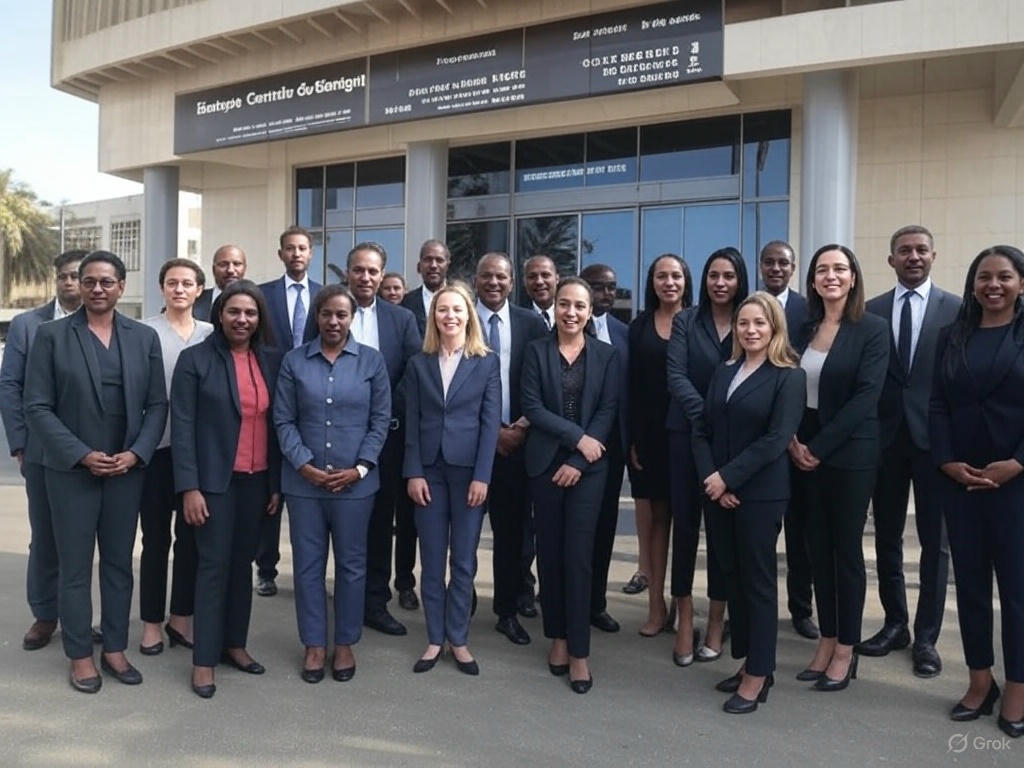The International Monetary Fund (IMF) and the government of Burkina Faso have reached a staff-level agreement on economic policy measures that will allow for the completion of the second review under the Extended Credit Facility (ECF). Upon formal approval by IMF management and the Executive Board, Burkina Faso will access around $32 million, raising the total funds disbursed under the four-year ECF arrangement to approximately $96 million. The arrangement, initially approved by the IMF Executive Board in September 2023, has a total value of about $302 million.

Ouagadougou, Burkina Faso: obelisk at Place de la Revolution / Revolution square – communist aesthetics – aka Place de la Nation – photo by M.Torres M
The discussions were led by Martin Schindler, the IMF Mission Chief for Burkina Faso, and took place both in Ouagadougou and during the IMF/World Bank Annual Meetings in Washington, D.C. Talks covered a range of topics, including the country’s fiscal and macroeconomic progress, measures to enhance fiscal transparency, management of public finances, and reforms aimed at the energy sector.
Macroeconomic Stability Amid Challenges
Burkina Faso’s economy has shown resilience in the face of security challenges and climate-related headwinds, maintaining projected growth at 4.2% for 2024. However, these conditions have tempered economic momentum, particularly in sectors outside of services. Despite these difficulties, Mr. Schindler noted Burkina Faso’s strong commitment to reform, as reflected by the country’s success in meeting most of its quantitative performance criteria and structural benchmarks.
“The authorities have made impressive progress on reforms in a highly challenging environment,” Schindler said, commending efforts on controlling energy subsidies, raising VAT reimbursement limits, and managing the public wage bill.
Fiscal Goals and Future Financial Stability
The Burkinabè government has set ambitious fiscal targets, aiming to reduce the deficit to 5% of GDP in 2024 and to continue tightening to reach 3% of GDP by 2027. These adjustments are designed to free up fiscal space for priority spending, ultimately contributing to debt sustainability, poverty reduction, and economic resilience.
As part of their commitment to sound fiscal governance, the authorities plan to further improve transparency in budget management, public procurement, and treasury practices. Measures to bolster social protection initiatives are also in place, with an emphasis on expanding support to vulnerable populations.
Reforms in Energy Subsidies and Climate Initiatives
A significant area of focus includes reforms to the country’s energy subsidies, which are expected to enhance fiscal sustainability. Additionally, IMF staff held preliminary discussions with Burkinabè officials on integrating climate-related goals within economic reforms. The discussions addressed the country’s interest in exploring a future Resilience and Sustainability Facility (RSF) arrangement to support climate resilience initiatives.
Progress on Food Security Initiatives
The IMF and Burkina Faso reviewed the implementation of measures funded under the IMF’s 2023 Food Shock Window, a program designed to alleviate food insecurity. An audit confirmed that the program contributed significantly to supporting those facing extreme food vulnerabilities, and a final report on its impact is anticipated in the coming months.
The IMF mission team expressed gratitude to the Burkinabè authorities and local stakeholders for their cooperation and hospitality. The IMF delegation met with key officials, including the Minister of Economy and Finance, Aboubakar Nacanabo, as well as representatives from the BCEAO and the private sector, signaling ongoing collaboration between Burkina Faso and international partners.




